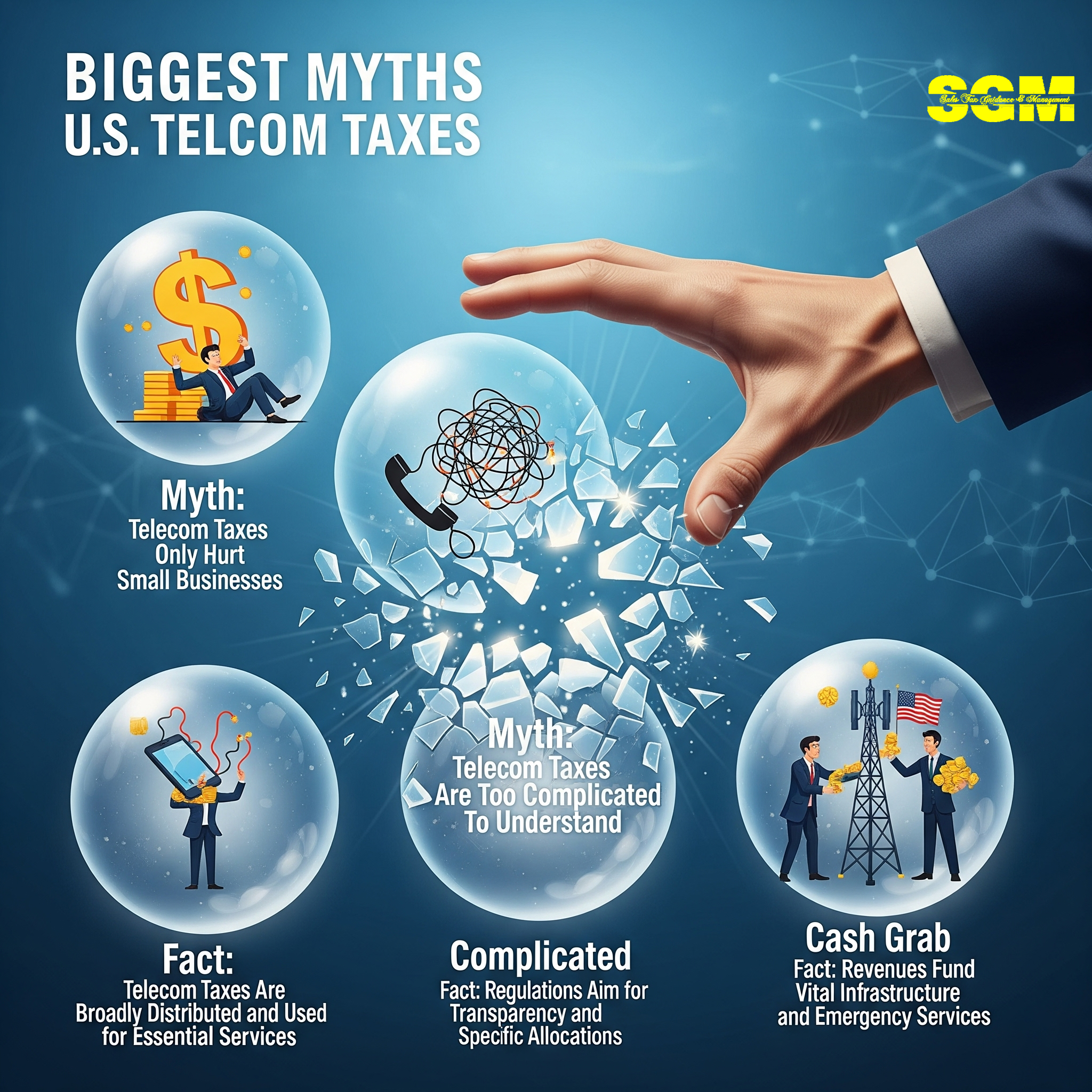US Telecom Tax Myths—And the Facts You Need to Stay Compliant
Telecom taxation in the U.S. is multi-layered and notoriously complex, creating ample room for confusion. Here are the most persistent myths—and the real story behind them:
1. “VoIP is delivered over the internet, so it’s tax-free.”
- Many mistakenly believe that because VoIP uses the internet, it’s exempt from taxation. That’s not the case. VoIP can be taxable—depending on your jurisdiction—even if it’s bundled or delivered digitally. The Internet Tax Freedom Act (ITFA) prohibits taxes on internet access, but it doesn’t exempt VoIP or similar telecom services.
2. “I’m a reseller or carrier—the taxes are being handled upstream.”
- This is a dangerous misconception. Even if your suppliers pay certain taxes or fees such as the Universal Service Fund (USF), your business remains independently responsible for registering, collecting, and remitting taxes to the appropriate authorities.
3. “Internet access is tax-exempt—so all telecom and IP-based services are too.”
- It’s more nuanced. The ITFA only exempts internet access services, not general IP or telecom services. Many IP-enabled services—like VPNs, MPLS, or SD-WAN—may still face regulation or taxation depending on how they’re classified and where they’re offered.
4. “The Federal Telephone Excise Tax is gone.”
- While some long-distance and bundled telecom services were exempted following legal challenges, a 3% excise tax on certain local telecommunications services remains in force.
5. “Managing USF and local telecom taxes is prohibitively difficult.”
- Though there’s a perception that calculating universal service contributions and local telecom taxes is daunting, regulatory frameworks and tools exist to simplify this process. USF contributions, for example, are based on revenue and a published factor, and many billing systems can automatically handle state and local tax calculations.
Why These Misconceptions Persist
- Rapid technology convergence: Legacy tax laws lag behind new technologies like VoIP and broadband, creating ambiguity.
- Jurisdictional complexity: Federal, state, and local governments each have unique tax frameworks.
- Terminology confusion: Terms like “tax,” “fee,” or “regulatory charge” often appear interchangeably on bills, misleading both consumers and businesses.
Recommendations for Providers
|
Action |
Why It Matters |
|---|---|
|
Classify your services correctly |
Taxability varies by service type and region. |
|
Register proactively |
Even resellers must register and remit directly. |
|
Invest in automated compliance tools |
Streamlines billing and reduces errors. |
|
Consult tax experts when needed |
Especially useful for ambiguous or bundled service offerings. |
Stay connect with SGM to ensure compliance with these new regulations.
Suggested Keywords:
US telecom tax, telecom tax compliance, VoIP taxation, USF telecom tax, internet access tax laws, Federal Telephone Excise Tax, ITFA telecom rules, telecom tax myths, Internet Tax Freedom Act VoIP rules, US telecom tax compliance guide, telecom tax myths and facts, how to comply with US telecom taxes, telecom tax responsibilities for resellers, understanding USF contributions, difference between telecom taxes and fees, state and local telecom tax rules, MPLS and SD-WAN tax regulations, telecommunications tax law USA, universal service fund tax, VoIP regulatory charges, IP-enabled services taxation, US telecom billing compliance, telecom tax calculation tools, telecom tax jurisdiction complexity, US telecom reseller tax obligations


